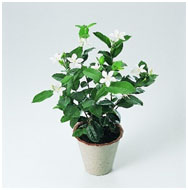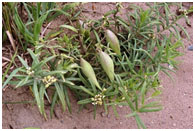Four Tantras
April 7, 2018
St. Petersburg
РАБОТА НАД ПЕРЕВОДОМ НА РУССКИЙ И РЕДАКЦИЕЙ АНГЛИЙСКОГО ТЕКСТА ДЖУД ШИ ВЕДЁТСЯ, РЕЗУЛЬТАТ МОЖНО ПОСМОТРЕТЬ НА САЙТЕ «ЭНЦИКЛОПЕДИИ»
АНО «Танадук» недавно было объявлено о начале нового проекта по переводу основополагающего текста Тибетской Медицины Four Tantras.
Let me explain the issue.
“Four Tantras” (rgyud bzhi) – is the main text of Tibetan Medicine, without it’s proper study nobody can start medical practice.
The fact is that at present time there is no suitable for practice translation into European languages.
English translation:
The underlined translation made by Men-Tsee-Khang (http://www.publication.men-tsee-khang.org/product/tibetan-astronomy-astrology/;
http://www.publication.men-tsee-khang.org/product/the-subsequent-tantra/) выполнен только для Первой, Второй и Четвертой Тантры подстрочно на тибетском и английском, однако обладает большим недостатком: термины даны в мнемоническом воспроизведении (то есть в транскрипции лхасского диалекта). Такой подход сильно ограничивает понимание и использование материала и сильно, до невозможности, затрудняет практическое применение и
изучение информации. Особенно это касается Третьей (перевод пока не сделан) и Четвертой Тантры, где очень важны однозначные и безошибочные прочтения терминов: названий болезней, сырья, лекарств, рецептуры.
Russian translations:
Translation made by Dashievbeing a respectable work, still obtains the same disadvantage.
The invaluable advantages of this work are: - All Four tTantras are translated fully - The text is struturised in a western way - It is supplied with detailed comments - Applications are provided with indexes of the name of diseases, raw materials and receipts
But disadvantage is – in spite of many terms are written in Badarayev’s (Russian) transliteration…
но названия сырья и составов зачастую даны в переводе, который является скорее интерпретацией переводчика и, учитывая многообразие разночтений и заменителей, не могут быть однозначно поняты.
In the index of healing substances the systematization attempt is given, but insufficient – not everywhere there are botanical names.
In TTM schools, in particular, in Rinchen Tenzin school (http://www.sowa-rigpa.ru/), lectures are based on Tibetan text rguid-bzhi. Students use workbooks where First and Second Tantras are written in Tibetan and underlined translation in Russian.
However, first, this information is separated on student's records; secondly, after all there is no mostly necessary practical information - it is the Third and Subsequent Tantras.
What we do offer:
Underlined translation. It will allow the user, in case of doubts, to be verified with the original.
Transliteration (Wylie or Badaraev(rus) - for the name of diseases, raw materials, medicinal compounds, for the concepts and terms which don't have an unambiguous analog in target language.
Structure of the translation:
བོད། (Tibetan)
Transliteration (Wylie or Badaraev(rus)
Russian translation by Dashiev
Russian “Be involved” translation
English translation ( from Russian “be involved” or English ”be involved”)
English translation by Men-Tsee-Khang
An example of final translation:
From:
4th Tantra
Chapter 10
“Medicine wine”
བུར་ཆང་ནས་དང་གཟེ་མ་གྲོ་དང་གསུམ།
བཙོས་ཏི་ལངས་པའི་གླུམ་ལ་བུར་ཆུས་བསིང།།
རླུང་ནད་མ་ལུས་སེལ་བར་བྱེད་པ་སྟེ།
ཁྱུད་པར་གློ་སྙིང་མཁལ་རུས་རླུང་ཆབས་འདོན།།
bur chang nas dang gze ma gro dang gsum/
btsos ti langs pa'i glum la bur chus bsing//
rlung nad ma lus sel bar byed pa ste/
khyud par glo snying mkhal rus rlung chabs 'don//
«Паточное вино»: ячмень, якорцы и пшеницу сварить,
заквасить и залить разбавленной патокой.
Это вино хорошо справляется с болезнями ветра,
Выгоняет ветер из легких, сердца, почек и костей
Для изготовления bur chang, прокипятить вместе три ингредиента: пшено, gze ma и ячмень. Дать им забродить. Эту закваску, называемую glum, смешать с разбавленной водой патокой. Это лечебное вино хорошо помогает при всех болезнях Ветра, в частности, при внедрении Ветра в легкие, сердце, почки и кости.
For preparing bur chang, boil three ingredients: wheat, gze ma and barley, and let them ferment. Filter the matured chang , named glum with a jaggery infusion. This medical chang cures all kinds of rlung disorders, and in particular treats infiltration of rlung chabs into lungs, heart, kidneys and bones.
For preparing Bur chhang, boil the three ingredients of wheat, Zema and barley, and let them ferment. Filter the matured chhang known as ‘loohm’ with a jaggery infusion. This medical chhang cures all kinds of loong disorders, and in particular treats infiltration of loong tshab into the lungs, the heart, the kidneys and the bones.
At the same time or consistently it is necessary to publish comprehensive Applicationswhich, having incorporated all available information, will give the chance to students and doctors to understand the text of "Four Tantras" fully.
Generally speaking, each of these Applications would be a solid work and it is good to involve respected doctors with considerable experience, practice and education for creation of such reference books.
Thus, in addition to being usable for practical use
- Translation of “Four Tantras”we also could create books so much necessary for TTM doctors and students:
- Index of diseases on Tibetan with definition of analogs in the western diagnostics and justification of such conclusion. The doctor of TTM having experience and education in the western medicine has to supervise such project.
- Index of healing substances TTM As a basis could be use "Thde encyclopedia of medicinal raw materials" by Andrey Kosoburov, in addition supplemented with photos, comments and notes of the doctors who are deeply knowing the Tibetan pharmacology.
Например:<br/
དུག་མོ་ཉུང་
dug-mo-nyung
Synonyms dug-nyung, indra-dza-ba, indra-ya-bam
Actions cooling, dulling, drying up and hardening
Healing helps at diseases of poisons, at widespread heat in a gall bladder, at a diarrhea because of heat and also at srin in a small intestine
Original herb

dug-mo-nyung
Botanical name Holarrhena antidysenterica Wall. ex A. DC.
Hindi kurchi, kuda, dhudi, kaura, kalinga или kutaja,
Chineese: 止泻木
Using part: fruits
Taste:
Taste: Bitter
After digestion: bitter
Processing:
Substitute:

Vincetoxicum sibiricum
Botanical name Vincetoxicum sibiricum (L.) Decne.
Using part: fruits
Taste:
Taste: bitter
After digestion: bitter
Processing:
Substitute:

Chamaenerion
angustifolium
Botanical name Chamaenerion angustifolium (L.) Scop, Epilobium spp.
Using part: flowers and upper leafs
Taste:
Taste: bitter
After digestion: bitter
Processing:
Comment of the distinguished doctor:
- Index of receipts It is possible to take as a basis "Receipt - book" by Andrey Kosoburov.
For example:
- Index of receipts It is possible to take as a basis "Receipt - book" by Andrey Kosoburov.
| gur-gum-bcu-gsum | Gurgum13 |
| གུར་གུམ་བཅུ་གསུམ་ | |
| Receipt (sourse 1): 1.gur-gum - 50 2.li-shi - 20 3. gi-wang -20 4. bse-ru - 20 5. mtshal -20 6. tsan-dmar - 40 7. gla-rtsi - 5 8. ‘dzham-‘bras -20 9. bong-nga-dkar -20 10. ru-rta -20 11. a-ru-ra -20 12.ba-ru-ra -20 13.skyu-ru-ra -20 | |
| Receipt (sourse 9): 1.gur-gum - 150 2.li-shi - 40 3.ru-rta -80 4. a-ru-ra -180 5. ba-ru-ra -100 6.skyu-ru-ra -120 7. ‘dzham-‘bras -50 (slightly fried for removal of a shell) 8. rgyam-mtshal-cog-la -4 (fried to light gloss) 9. sha-ru (или ma-he’i-rwa ) – 20 (open roasting) 10. tsan-dan-dmar-po - 100 11. bong-dkar -100 12. gi-wang – 0.8 13.gla-rtsi – 0.8 | |
| Receipt (sourse 4): 1.gur-gum - 90 2.li-shi - 90 3.ru-rta -15 4. a-ru-ra -50 5. ba-ru-ra -50 6. skyu-ru-ra -50 7. ‘dzham-‘bras -10 8. mtshal -9 9. bse-ru - 10 10. tsan-dan-dmar-po - 10 11. bong-dkar -10 12. gi-wang - 5 13. gla-rtsi - 8 = all mixed with ka-ra | |
| Prescription: (sourse 1): Liver pains after a meal, vomiting with sour liquid, strong slackness, physical weakness, bad characteristics of blood, cureing of urine path, inability to become straight in a waist. Especially well this medicine cures rgud-pa in the liver, heat ‘grams in kidneys (sourse 9): This medicine helps at rgudin the liver, poisoning with the made poisons, wounds, at a heat ‘grams in kidneys, at introduction in kidneys of gnyan, difficulties at urination, at a headache on the one part, srin ya-ma |
- External procedures Encyclopedia and Atlas
На нынешний момент нет ни одной полной иллюстрированной Энциклопедии о внешних процедурах и точках ТТМ, совмещенной с анатомическим Атласом. В современных источниках, в привычной нашему восприятию форме (фотографии, анатомически верные ссылки, латинские названия и т.д.), - и то, частично, эта информация есть в английской книге доктора Ниды Ченагцанг и доктора Там Нгуен «Точки Сова Ригпа» (Nida Chenagtsang and Tam Nguyen, MD «Sowa Rigpa Points»), но полной , сведенной воедино, информации по внешним процедурам, тибетским – латинским названиям органов, костей, мышц, сосудов; по точкам, пожалуй, нет нигде. - Demonology and rituals.
In spite of the fact that there are issued a numerous books about subtle creations, but there are no books about purposeful indexes on demons gdon, described in medical treatises and also a distinct research of rituals and other methods of fight against them. - History and geography of TTM – from Yuthok to our days. No doubt, such research executed properly would be very useful as for students, and so for the practicing doctors of TTM. Knowledge of geographical, cultural, and political factors which have influenced Tibetan Medicine will give the key for understanding and assessment of both: texts, and recommendations made in them.
For sure all described information would be interesting not only in Russian, but also in Engish, therefore, we sincerely hope for interest in ANO “Tanaduk” of our foreign colleagues.
For technical performance of this work efforts, good will, help and financial support of many people are necessary. We estimate financial cost of systematic performance of these tasks at the level not less than 500 Euro monthly.
